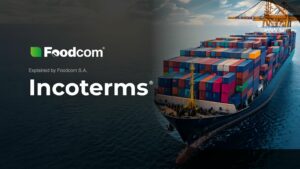Trade Tariffs – what is it?
In the context of Foodcom S.A.’s operations, “Trade Tariffs” refer to taxes or duties imposed by governments on imported or exported goods. These tariffs are typically levied as a percentage of the product’s value or a fixed amount per unit. Trade tariffs serve multiple purposes, including generating revenue for governments, protecting domestic industries, and regulating international trade. They can significantly impact the cost of goods, market competitiveness, and the profitability of businesses engaged in cross-border trade.
Most common questions
1. Why do governments impose trade tariffs?
Governments may impose trade tariffs for various reasons, such as protecting domestic industries from foreign competition, generating revenue for public spending, or addressing trade imbalances. Tariffs can also be used as a tool to incentivize or disincentivize specific trade behaviors and promote economic policies.
2. How do trade tariffs affect businesses in the food and industrial sectors?
Trade tariffs can have significant implications for businesses in these sectors. They can impact the cost of raw materials, ingredients, and finished products, potentially affecting pricing strategies and profit margins. Tariffs may also influence supply chain decisions, such as sourcing and distribution, as businesses seek to mitigate the financial impact.
3. Are trade tariffs the same as import and export taxes?
While trade tariffs and import/export taxes both involve levies on cross-border trade, they are not necessarily the same. Import and export taxes can encompass a broader range of fees, including customs duties, excise taxes, and value-added taxes (VAT). Trade tariffs specifically refer to taxes or duties imposed on goods crossing international borders.
4. How does Foodcom S.A. adapt to changes in trade tariffs?
Foodcom S.A. is committed to staying agile and responsive to changes in trade tariffs. The company closely monitors trade policies and regulations, assesses their impact on its operations and customers, and takes proactive measures to ensure continuity and competitiveness. This may involve adjusting sourcing strategies, exploring new markets, or advocating for favorable tariff policies when appropriate.




